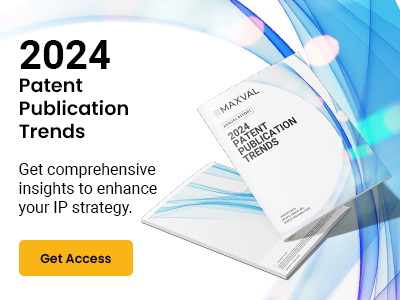Welcome to this edition of IP Five in 5 – where we cover the top five IP news stories in 5 minutes or less. This week’s edition includes Google’s $1.67 billion AI-related chip patent lawsuit settlement, Nokia and OPPO’s cross-licensing agreement for 5G patents, and more.
Patent Spotlight
Google Resolves a $1.67 Billion AI-related Chip Patent Lawsuit
Google settled a patent infringement lawsuit with Singular Computing over chips powering its AI technology, resolving the lawsuit seeking $1.67 billion in damages. The details of the settlement remain undisclosed, with Google asserting it did not violate Singular’s patents and expressing satisfaction in resolving the matter.
Source: Reuters
Nokia and OPPO Ink a 5G Patent Cross-license Deal
Nokia and OPPO have signed a multi-year patent cross-license agreement, resolving all pending patent litigation. Under the deal, OPPO will make royalty and catch-up payments for non-payment periods. The terms of the agreement remain confidential.
Source: Nokia
Motorola Mobility and Sharp Sign a Patent Cross-license Pact
Motorola Mobility (a Lenovo subsidiary) and Sharp have globally agreed on cross-patent licenses for wireless communication technologies, showcasing a commitment to fair, reasonable, and non-discriminatory (FRAND) terms. Lenovo, with a rich history of innovation, emphasizes the importance of mutual respect in cross-licensing agreements and reaffirms its dedication to FRAND principles in all negotiations.
Source: Lenovo, Juve Patent
Trademark Spotlight
The EU’s Top Court Supports Audi in a Trademark Dispute
The EU’s top court ruled in favor of Volkswagen and Audi, potentially limiting spare parts manufacturers’ use of logos. The case involved a Polish retailer selling Audi-compatible radiator grilles with a carved-out space for the logo, with the EU court stating that such use without consent could infringe trademark law, leaving the final decision to the Polish court.
Source: Reuters
Copyright Spotlight
Computer Scientist Advocates AI Copyrights in US Appeal
Computer scientist Stephen Thaler is urging a federal appeals court to grant copyright protection for creative works generated by artificial intelligence, challenging the U.S. Copyright Office’s stance that human authorship is required. Thaler argues that recognizing copyrights for AI creations aligns with the broader objectives of copyright law.
Source: Reuters




